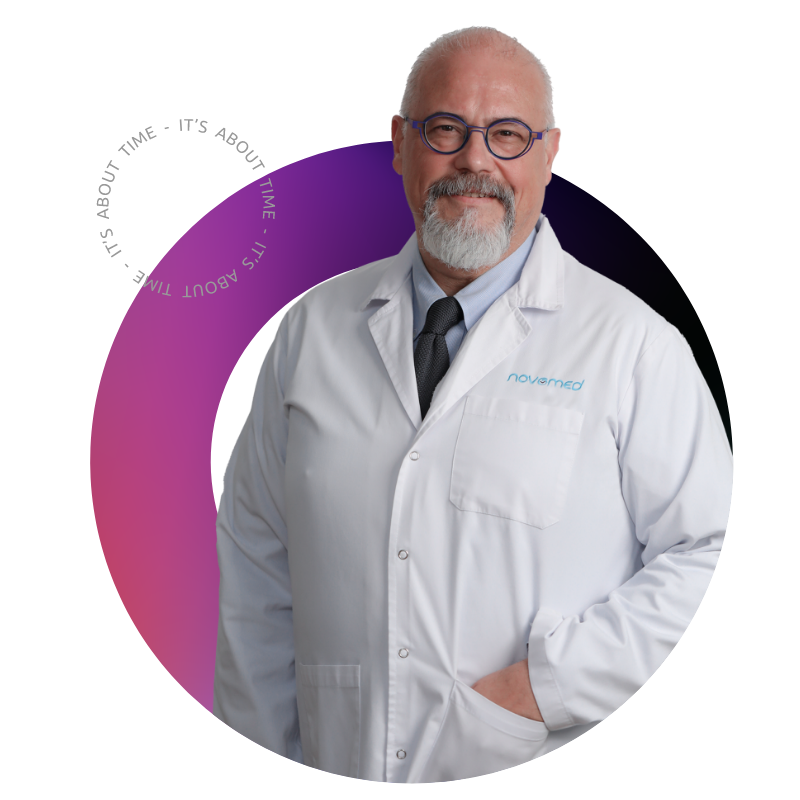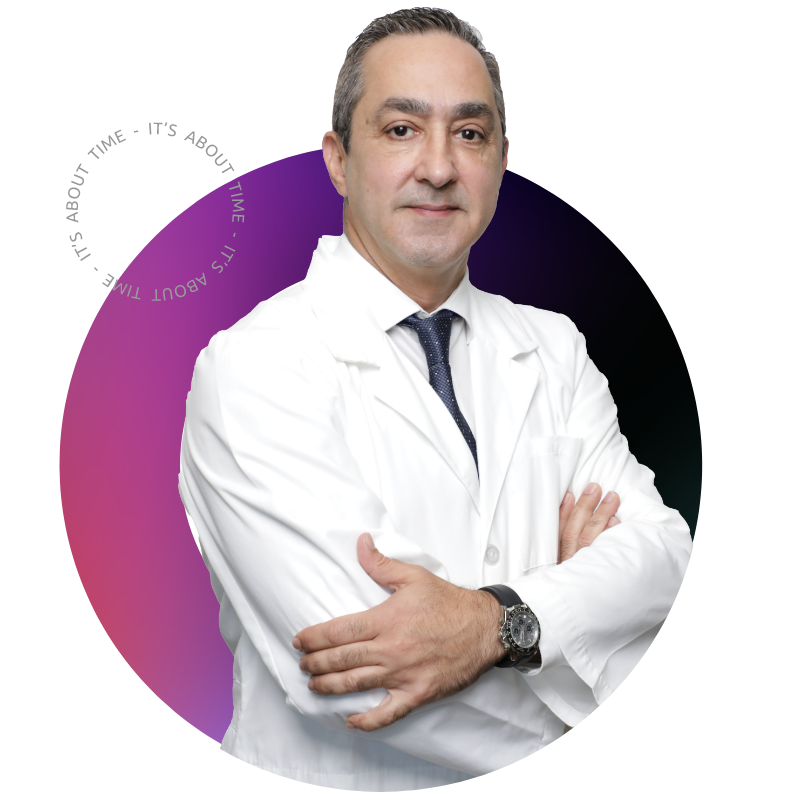Vasectomy is a surgical procedure that involves cutting, sealing, or tying the vas deferens, the two tubes that transport sperm from the testicles to the penis. This procedure is one of the most effective birth control methods because it permanently prevents the release of sperm during ejaculation. After a vasectomy, a male can still ejaculate and produce semen. However, there is no sperm in the semen.
Men who have completed their families and do not want to have any more children frequently choose this procedure. It has a minimal risk of complications and is done under local anesthesia in an outpatient setting. Most men can resume their normal activities within a few days, though there may be some discomfort and downtime during the healing process.
You must be certain that you do not want to produce children in the future before having a vasectomy because although the procedure can be reversed, it should be regarded as permanent.
How does a vasectomy work?
Sperm exits the testicles to form semen through two tubes known as the vas deferens. If your sperm enters the cervix, it may result in conception. The vasectomy prevents sperm from entering your semen by blocking or cutting each vas deferens artery.
Your semen will not contain sperm starting at least 2 months after a vasectomy, so it cannot result in conception. 8–16 weeks after your vasectomy, you must have your semen analyzed to make sure there are no sperm present.
Your semen will continue to feel and appear the same after a vasectomy. Even though you still have the same quantity of semen as before, there will not be any sperm in it, making it impossible for you to become pregnant. Vasectomies do not affect your hormone levels, sex desire, or ability to achieve an erection.
What are the benefits of the procedure?
A vasectomy is a popular option for birth control for many reasons:
- It is a permanent and reliable method of preventing pregnancy. Therefore, after the procedure, you will not need to use birth control before intercourse, such as a condom.
- The cost is significantly lower than those associated with female sterilization (tubal ligation) or the long-term expense of birth control for women.
- It is a reasonably quick and safe procedure. It typically only takes 30 minutes to complete and is done under local anesthesia. There is a low chance of complications or side effects, and the recovery period is short.
- It does not affect a man’s libido or sexual function, nor does it increase his risk of developing health problems.
Am I a suitable candidate for the procedure?
Most individuals who have penises and testicles can have a vasectomy without risk. Only if you are certain that you do not want to be able to have children for the rest of your life should you have a hysterectomy. You shouldn’t get a vasectomy if you suffer from a testicular disease or chronic testicular discomfort.
Your procedure might be reversible, but there is no assurance it will be successful. Reversal surgery is a difficult procedure that can be costly and is occasionally unsuccessful. For that reason, it is best to postpone having a vasectomy if there is a possibility that you might want to father children in the future.
What to expect before the procedure?
Before your vasectomy, consult a urologist to go over the procedure’s details and get any questions you might have answered. Your doctor will want to meet with you to ensure that a vasectomy is the best method of birth control for you before performing one.
During the consultation, the urologist will review your medical history and perform a physical examination to determine whether you are a suitable candidate for the procedure.
Blood-thinning medications, such as aspirin or ibuprofen, should be avoided in the days leading up to the procedure as they can increase the risk of bleeding during surgery. You should make plans for transportation to and from the procedure, as you won’t be able to drive following surgery.
What to expect during the procedure?
The vasectomy procedure is usually performed in an outpatient setting and takes around 30 minutes to complete.
Your scrotum will be shaved and cleaned with an antiseptic solution in the operation room. The area will be numbed with local anesthesia, and you may be given oral medication to help you relax during the procedure.
Two techniques can be used for vasectomies:
Conventional vasectomy
To access the vas deferens during this type of vasectomy, one or two small cuts are made in the scrotum’s skin. The vas deferens is cut and a small part of it is removed, leaving a thin space between the two ends. The urologist will tie the severed ends of the vas or insert tissue between them. Then, through the same cut or a new one, these stages are repeated on the other vas. The scrotal cuts will be sealed with dissolvable stitches or allowed to close on their own.
No-scalpel vasectomy
During a no-scalpel vasectomy, the urologist feels for the vas beneath the scrotum’s skin and holds it in place with a small clamp. To carefully lift out the vas deferens, a tiny hole is made in the skin and stretched open. After that, it is cut, tied, or seared and reinserted back in place.
What to expect after the procedure?
Following a vasectomy, recovery is simple. You will need to rest briefly after the operation before being discharged. Your doctor might advise you to wear tight-fitting undergarments and support your scrotum with a bandage for at least 48 hours following surgery. You may experience some swelling and bruising after the procedure, but these side effects will improve over the coming days. A cold compress and over-the-counter painkillers are usually sufficient to manage this.
You should avoid strenuous exercise and sexual activity for at least a week following the procedure. A backup method of contraception should be used until the urologist confirms that your semen is free of sperm. Your semen won’t be sperm-free for at least two months after your procedure. Most urologists advise delaying at least three months and/or 20 ejaculates before checking the semen. A semen analysis can usually be performed during your follow-up appointment to accomplish this.
What are the risks of the procedure?
Vasectomy does have some risks, just like any surgical procedure. These risks include bruising, bleeding, and infection. Rarely, the vas deferens may reconnect, which can result in an unplanned pregnancy. After the procedure, some men might also suffer ongoing scrotal pain or discomfort. The risks of complications are minimal, though, and most men who get vasectomies don’t have any lasting issues.
Schedule your appointment at the Novomed Clinic in Dubai today!
If you are considering getting a vasectomy, contact our knowledgeable team in Dubai now by calling toll-free 8006686 or clicking the chat icon at the bottom of the screen to book your consultation.




























